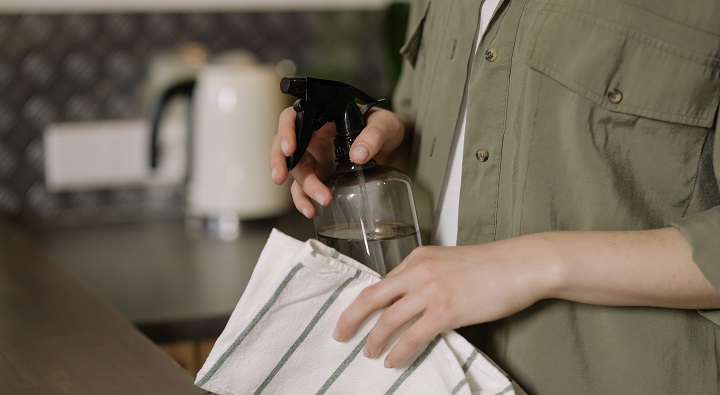
If you have been avoiding the chore of thoroughly cleaning up all year long, you are not alone. “Everybody has their reasons for putting off the task of clearing drawers, closets, and entire rooms of junk,” says Caroline C. Aquino, MD from the Department of Pediatrics, Allergology and Immunology Section of top hospital in the Philippines, Makati Medical Center (MakatiMed). “It’s exhausting, it takes so much time, and it never ends.”
“Yes, cleaning and decluttering have advantages too—and I’m not just referring to the extra space that you get from throwing things out,” Dr. Aquino explains. “In fact, it’s even good for your health. Here are five ways that make it so:
You’ll breathe better. What is it about cleaning out long-forgotten spaces that makes the air seem fresher? “Purging your cabinets and closets of stuff you have not seen or that hasn’t moved from its place in years means getting rid of all the dust, pet dander, molds, mildew, and all possible allergens which accumulated in there,” she points out. “To avoid an allergy attack (itchy runny nose, watery eyes, sneezing, coughing), wear a facemask when you dust, scrub, and vacuum.”
When doing this, Dr. Aquino advises to clean from high to low, meaning start cleaning the highest spots like the top shelves or ceiling corners, and work your way down so you will be able to catch the dust as it settles on lower shelves and the floor. Another thing to remember is that clothes and other seldom used items can collect dust. “Reducing clutter by putting them away in a storage box also prevents more spots for dust mites, cockroaches, and other pests to hide,” she continues. You should also seal off any areas where cockroaches can enter the home, and repair or change leaking fixtures and roofing to reduce moisture.
You’ll get a good workout. Bored with your 10,000-steps-a-day routine? “Decluttering is definitely a full-body workout,” says Maria Patricia Abes, MD, also a consultant from the Department of Pediatrics, Allergology and Immunology Section. “It uses muscles in the shoulders, arms, chest, abdomen, and legs to lift and move things around. Just make sure to bend from the knees—not your back—when you attempt to lift a heavy object from the ground.”
You’ll sleep soundly. Anybody who has hit the gym or finished a 10K knows what comes after that exercise high—sleep! “Same goes with cleaning up. The effort you put into clearing out closets, segregating items to keep and give away, and scrubbing down dirt and stains is physically exhausting. An afternoon nap or good night’s sleep usually follows.” The sight of a spacious and clutter-free bedroom at the end of a productive day is enough to make you relax and rest easy.
You’ll improve your mood. And it isn’t just from the endorphins that resulted from hours of decluttering. “The act of cleaning has a therapeutic effect,” avers Dr. Abes. “Throwing out expired products and documents that are no longer relevant, and choosing to donate or sell items that you once refused to let go of can be liberating. Plus, seeing the clean and spacious area that you freed up after ridding it of things just waiting to be discarded or given away leaves you with a feeling of accomplishment.”
You’ll have a safe home. Did you know that fires and falls are two of the most common accidents at home—and that clutter may be the cause of both? “Flammable materials like piles of old newspapers can make fires spread faster. Family members might also have trouble navigating their way around clutter and trip. One misstep and a senior could break a hip,” says Dr. Abes. “In addition, regular cleaning is really a must for people with allergies since frequent dust exposure can worsen these. Make your health and family’s safety your motivations to finally face what you have been dodging for years and clean up!”

